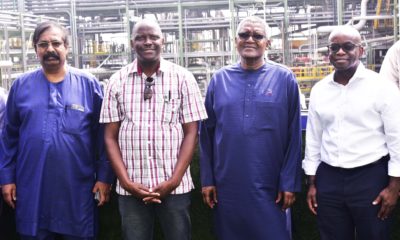Manchester City
Time to Improve the Nigerian Food Plate By Elvis Eromosele

Africa is big on agriculture. It has to be. It is the second-largest continent in the world. It is also the second most populous. So, there’s plenty of space to farm and over a billion mouths to feed.
It is no surprise therefore that an estimated 65 per cent of Africa’s population relies on subsistence farming. Subsistence farming, or smallholder agriculture, by definition, is when one family grows only enough to feed itself.
Nigeria is the most populous country on the continent. Although it depends heavily on the oil industry for its budgetary revenues, Nigeria is predominantly still an agricultural society. Reports indicate that approximately 70 per cent of the population engages in agricultural production at a subsistence level.
Sadly, with so many people engaged in farming across Africa, a large number of the population still don’t get enough to eat. The Food and Agriculture Organisation (FAO) of the United Nations, in its State of Food Security and Nutrition in the World report for 2020 revealed that one in five Africans is undernourished, with 250 million people or 19.1% of the population going to bed each night hungry across the continent.
However, the truly sad part is that 30% to 40% of the food produced on many farms in Africa never reach any plate – they go to waste! It is beyond disheartening. Imagine, if you can, food decomposing in farms while plates are empty a city away. It is not a pretty picture by any means.
So, the great task is to improve access to food for all, especially protein-rich nutritious foods.
The truth is that any effort to improve nutrition needs to involve the government. The government is the biggest business and enabler of business anywhere in the world.
In 2021, as governments consider how to ensure citizens get enough food and nutrition, the Nigerian government would do well to consider some sort of direct intervention.
Several options have been proposed to help the country improve the Nigerian food plate. Here are three exciting possibilities: first, the introduction of a protein-centred national nutrition policy; second, food complementation, especially with protein; and thirdly, widespread and structured nutrition education.

























